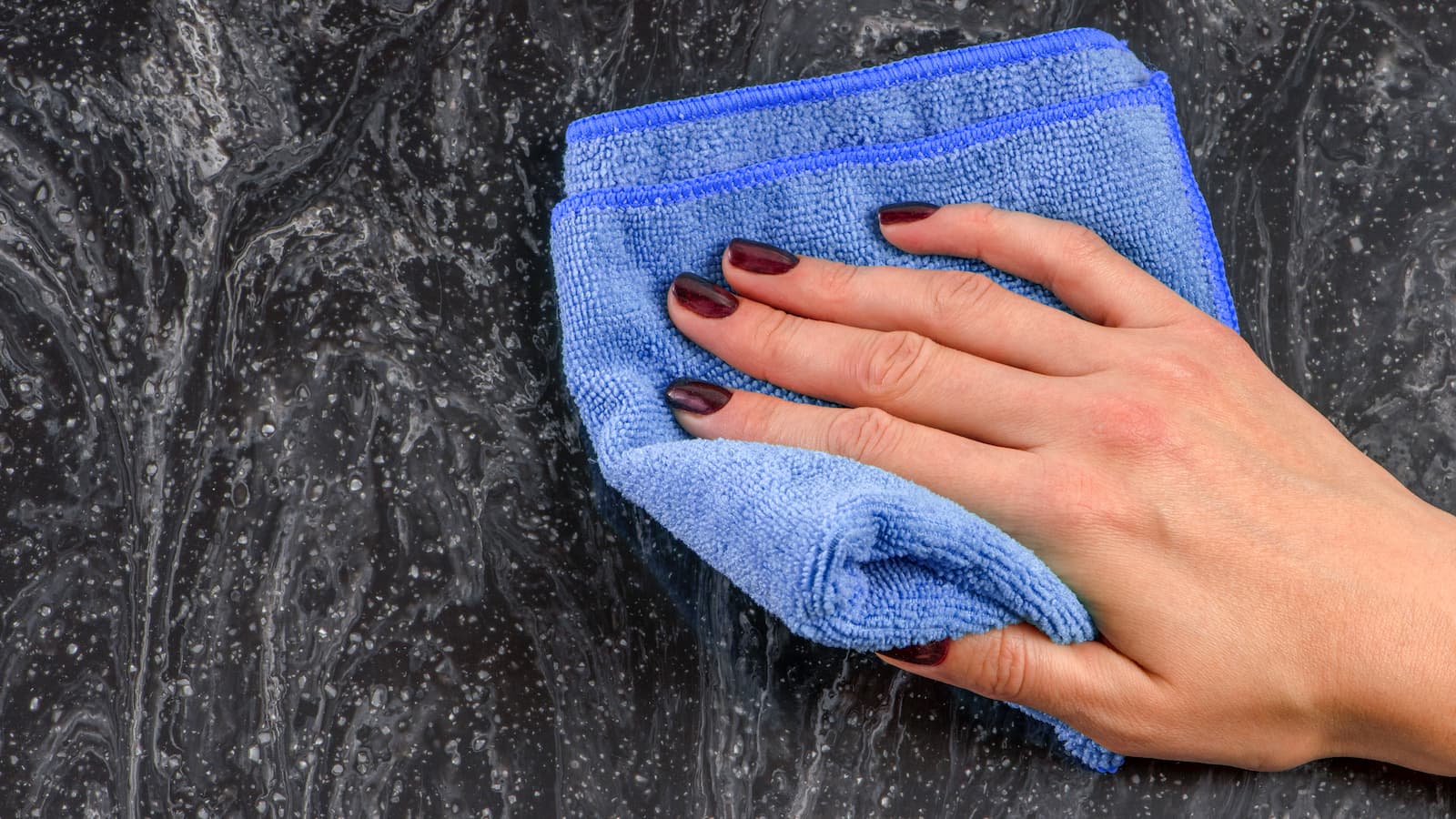UK kitchen industry divided over decision to ban artificial stone products amid rising silicosis cases
There have been calls from some kitchen worktop companies for a nationwide ban on artificial stone due to health concerns but other firms claim policies should be focused on making manufacturing practices safer

The UK kitchen industry is divided over whether to ban artificial stone products after reports linked them to serious health concerns, homebuilding & Renovating has found.
Following cases of UK workers developing silicosis, a life-threatening, incurable disease from working with high-silica kitchen worktops, some providers have urged the government to ban these products entirely.
However, some kitchen surface suppliers argue that instead of banning the material, efforts should focus on improving the safety of manufacturing practices involving high-silica quartz.
Herringbone leads calls for nationwide ban
Following confirmed cases of UK workers becoming inflicted with the lung disease silicosis, Herringbone became the first kitchen company to ban artificial stone products from its range in March 2024.
Additionally they called on the UK government to install a nationwide ban on artificial stone products following the of likes Australia which has already banned the product.
William Durrant, owner of Herringbone, stated: “We are pleased to have started a conversation in our industry and want to thank everyone for their support so far. We are aware that regulations are in place, however, we see no place for high-silica engineered quartz when so many other alternatives are readily available."
He added: "By taking the petition to parliament we hope that we can make further impact and help make all stonemasons, fitters and people exposed to high-silica dust particles safe.”
Get the Homebuilding & Renovating Newsletter
Bring your dream home to life with expert advice, how to guides and design inspiration. Sign up for our newsletter and get two free tickets to a Homebuilding & Renovating Show near you.
Dr Carl Reynolds, a leading expert on silicosis, supported the calls for a nationwide ban, stating: “Silicosis is a devastating, incurable, and entirely preventable disease. The global artificial stone silicosis outbreak is a tragedy. I can see no justification for artificial high-silica stone use in the UK and fully support a ban.”
Caesarstone also moving away from high-silica quartz
Caesarstone has also signalled their intention to move away from silica products.
A spokesperson said: “Caesarstone is on a pathway to a reduced silica product range, with the majority of our current portfolio already falling into this category. Caesarstone Mineral™ Crystalline Silica Free products will be in the market towards the end of the year.
"The health and safety of our employees, suppliers, partners and communities are our first priority. As such, Caesarstone promotes safe working environments that are free of hazards and comply with all local laws.
"Alongside ongoing worldwide product development, we continue to educate on and promote best practices within the industry.”
'Any risk is only during the manufacturing process'
However, other providers have argued that rather than banning high-silica products the industry should be focusing on making manufacturing practices safer.
Paul Dore, managing director at County Stone Ltd claims: “There is a misconception that quartz worktops are dangerous, but that is extremely exaggerated. Quartz is engineered, and like many stones, contains silica. When being cut, the silica dust can be inhaled but it’s important to note that if all recommended PPE and environmental steps are followed, the risk of this is small.
“It is also crucial to highlight that any risk is only during the manufacturing process. The headlines are painting a picture that quartz is a health risk, like asbestos, but having quartz in your home, whether as a kitchen worktop, backsplash, or even feature wall, is not dangerous.
He added: "At County Stone, safety is our top priority. As such, we take special measures and go above and beyond to ensure our team takes every precaution when cutting any material. As such, we have never had any issues with quartz or any other material.
“The truth is that while some people have unfortunately developed silicosis, which may be linked to their work with quartz, this will have only happened due to the recommended safety advice not being followed."
He said "regulating bodies look at the root cause of the issue" and that even if quartz is banned "there may still be a rise in illnesses and injuries".
Homebuilding & Renovating also contacted leading providers of high-silica products such as Cast Stone Supplier, Surfacestone UK, Worktop Hub, My Kitchen Worktop and Quartz Ltd over whether they had plans to remove silica products but these declined to comment.
Legal expert claims 'We’re seeing more cases involving workers diagnosed with silicosis'
Despite these claims, there have been calls for "decisive action" and a Silica Exposure Register has been created for those affected.
Oliver Collett, a specialist occupational disease lawyer at Irwin Mitchell, said: “Silicosis is an extremely debilitating disease and once developed, it’s incurable, as the damage caused to the lungs is irreversible.
“We’re seeing more cases involving workers diagnosed with silicosis, which is why we’ve created a Silica Exposure Register, so workers can store and retrieve their work history for future use.
“It’s vital that people are aware of the dangers of silica and employers ensure the safety of their workforce. Decisive action is needed to help prevent silica creating the same disastrous legacy as asbestos.”

News Editor Joseph has previously written for Today’s Media and Chambers & Partners, focusing on news for conveyancers and industry professionals. Joseph has just started his own self build project, building his own home on his family’s farm with planning permission for a timber frame, three-bedroom house in a one-acre field. The foundation work has already begun and he hopes to have the home built in the next year. Prior to this he renovated his family's home as well as doing several DIY projects, including installing a shower, building sheds, and livestock fences and shelters for the farm’s animals. Outside of homebuilding, Joseph loves rugby and has written for Rugby World, the world’s largest rugby magazine.
